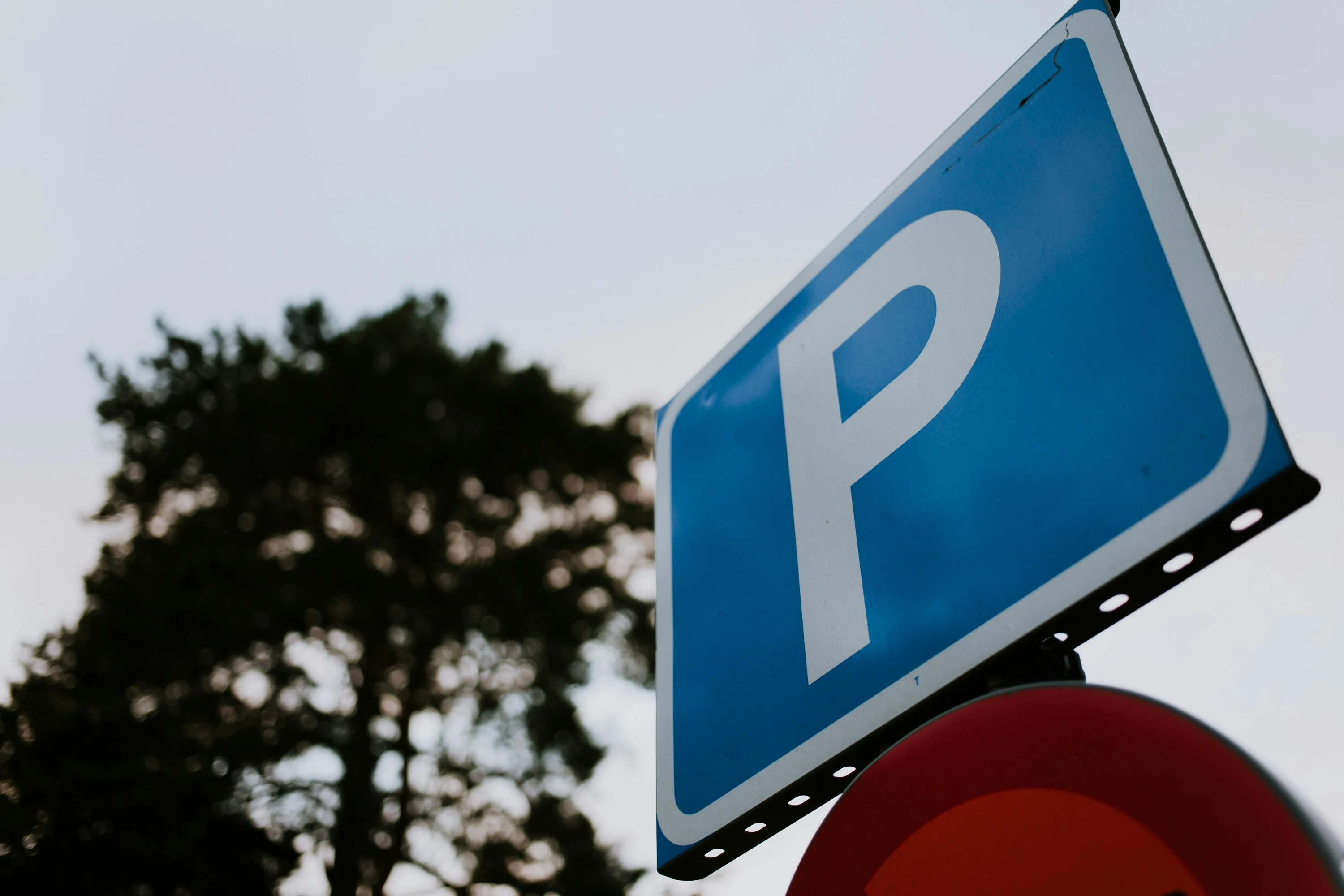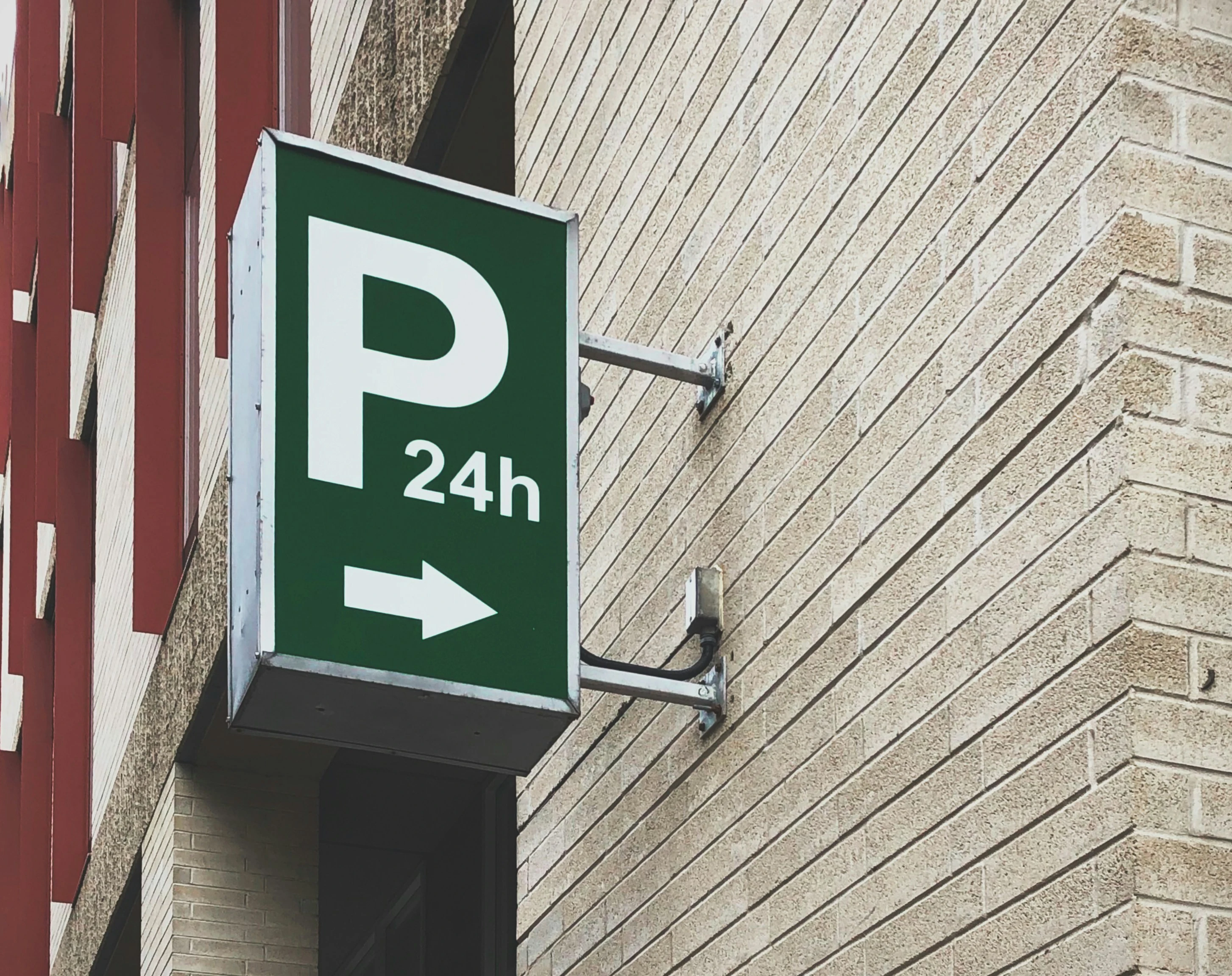Some garages, such as INDIGO Brussels Royal, use modern technology like automatic number plate recognition and provide staff supervision.
Another option is Park & Ride (P+R). Here you park your car on the edge of the city and continue by public transport. P+R is often cheaper, sometimes free, and combines convenience with safety.
“The P+R is the preferred solution for tourists and visitors to Brussels.” – parking.brussels
- Brussels: P+R Ceria-Coovi (1,263 spaces, 200 secure bike spots, 24/7 open). Locations such as Stalle, Herrmann-Debroux and Delta are also popular.
- Bruges: P+R Waggelwater with 195 spaces, EV chargers and a direct bus to the centre.
- Ghent: P+R Ledeberg is a convenient solution outside the busy centre.
By choosing secure garages or P+R sites, you significantly improve the safety of your vehicle, no matter which city you visit.

Parking in Belgian cities can be challenging. Think of fines, low-emission zone rules and risks like car theft or vandalism. But with the right approach, parking can be safe and stress-free. In this article we share five practical tips to help you leave your car with peace of mind.
Parking apps and platforms: faster and safer choices
Digital tools make finding a parking spot much easier and safer. Instead of driving in circles, you can reserve a place in advance through apps or platforms.
One example is SparkSpot, which gives access to private parking spots such as driveways, garages and enclosed areas. These are often safer and closer to your destination than street parking. SparkSpot also includes useful features like direct communication with owners, filters for EV charging points, and secure payment processing.
There are also city-specific apps approved by local authorities. In Brussels, official apps include 4411, SEETY, YELLOW BRICK, INDIGO NEO and AUTLO. These apps automatically apply the right rules, such as the free first 15 minutes of parking in some areas.
EasyPark, available in over 20 countries and 3,700 cities, is another widely used app. It offers both pay-per-session and subscription options, giving you an overview of costs and available spots.
When using parking apps, always check safety features: download only from official app stores, verify QR codes on meters to avoid fraud, and monitor your bank statements for unauthorized transactions.
Local parking rules and low-emission zones: avoiding fines
Each Belgian city has its own parking regulations, zones and rates. By checking these in advance, you ensure legal parking and avoid fines. For example, Brussels uses blue, green, grey, red and orange zones, each with specific time limits and tariffs.
In Antwerp, from October 2025, the historic centre will largely be closed to visitors without a permit. Residents and specific groups will receive access passes, while others can use garages or P+R facilities.
Low-emission zones (LEZ) are also becoming increasingly important. Brussels and Antwerp use cameras to enforce environmental standards. If your car doesn’t meet the criteria, you may need a day pass or opt for alternatives like P+R.
Respecting local parking rules and LEZ requirements helps you park more confidently and with peace of mind.

Safety features: lighting, access control and CCTV
Not all parking facilities offer the same level of security. Look out for key safety signals such as:
- bright and consistent lighting,
- controlled access via gates, barriers or badges,
- clear sightlines without blind spots,
- and when available: CCTV or on-site monitoring.
Research shows that visible security significantly reduces incidents in parking facilities. Well-maintained areas with frequent pedestrian flow also increase social safety and discourage crime.
Private parking spaces often offer additional peace of mind. Think of locked driveways, garages or shared lots accessible only to registered users. Through platforms like SparkSpot, you can search specifically for such secure features.
Peer-to-peer parking: private spots closer to your destination
Beyond public garages and on-street options, peer-to-peer parking is a smart and reliable choice. Through platforms like SparkSpot you gain access to unused private spaces – from driveways and garages to secured lots. This concept, also known as parksharing, allows individuals and businesses to rent out their spaces, while drivers enjoy guaranteed parking.
The main advantage: you book in advance, your spot is reserved, and often it’s closer to your destination than traditional garages. For owners, it’s an easy way to turn unused space into extra income.
“SparkSpot made renting out my driveway so easy! I just listed my spot and now I earn extra every month without effort. Highly recommended!” – Lisa, Bruges
“SparkSpot not only helps me earn extra, it also reduces parking pressure in our neighborhood. I love that I can share my spot so easily and benefit at the same time!” – Mark, Ostend
Peer-to-peer parking also supports more sustainable urban mobility. By reusing existing infrastructure, it reduces traffic congestion, emissions and unnecessary search traffic.
Conclusion: safe parking starts with smart choices
Safe parking in Belgian cities requires more than luck. By opting for secure garages or P+R sites, using reliable apps, respecting local rules, focusing on safety features and exploring peer-to-peer parking, you park with confidence and peace of mind.
This approach reduces stress, protects your vehicle and provides alternatives that are often closer and more convenient. The result: less worry and more peace of mind when visiting the city.
Veelgestelde Vragen
Hoe kies ik de juiste parkeerapp voor mijn behoeften?
Zoek naar apps met nummerplaatherkenning, actuele tarieven en werking in meerdere Belgische steden. Gebruik altijd de officiële appstores.
Waar let ik op bij het kiezen van een veilige parkeerplaats?
Belangrijke signalen zijn goede verlichting, gecontroleerde toegang en camerabewaking (CCTV). Drukke, goed onderhouden gebieden bieden extra veiligheid.
Wat is peer-to-peer parkeren via SparkSpot?
Hiermee kun je via een digitaal platform privéparkeerplaatsen huren. Voordelen zijn een gegarandeerde plek, locaties dichter bij je bestemming en minder zoekverkeer.
Hoe vermijd ik parkeerboetes in Belgische steden?
Controleer op voorhand de zoneregels, tijdslimieten en LEZ-vereisten. Sla apps of infopagina’s op als bladwijzers voor snelle toegang.
Waarom P+R kiezen in plaats van parkeren in het stadscentrum?
P+R is vaak goedkoper, veiliger en biedt vlotte verbindingen naar het centrum. Ideaal tijdens drukke periodes of voor langere verblijven.








